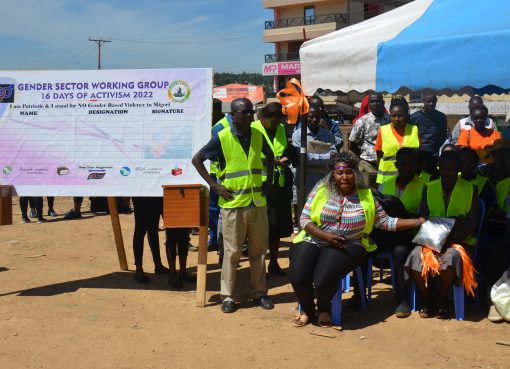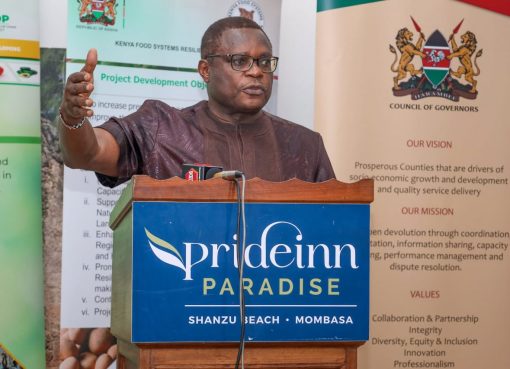The Government has finalized modalities to stimulate coffee production in the next five years to expand the country’s share in the international market.
Principal Secretary in the department of cooperatives Patrick Kilemi stated that the Government was committed to spur production of coffee from the current 51,000 metric tonnes to 81,000 MT by 2024 and progressively to 260,000MT by 2027.
“We shall achieve this by, lowering cost of production through subsidizing farm inputs, streamlining the accessibility and disbursement of the Cherry Advance Revolving fund at New Kenya Planters Cooperative Union (New KPCU). And revamping the Coffee Research through reintroduction of the Coffee Research Institute, “said Mr. Kilemi.
He made the remarks during a workshop on familiarization with the operations of the Direct Settlement System (DSS).
DSS is a technology platform on which coffee trading will henceforth be conducted as provided for in the new coffee trading regime supervised by the Capital Markets Authority (CMA).
He said the government intends to fast track reintroduction of the Coffee Board of Kenya (CBK) to oversight and coordinate the coffee policy with a vision to position the country globally and working with County Governments to strengthen the extension services.

“We would like to invite our coffee traders and buyers both local and international to support the farmers and the Government by offering prices that are commensurate to the farmers’ efforts in the farm and the quality of our coffee,” he added.
Kilemi recalled that in the period between 1984 and 1990, the coffee sub sector generated an estimated 30 per cent of employment opportunities in the agriculture sector. The households involved in coffee production progressively increased from 11,000 in 1963 to an estimated 700,000 families between 2019 and 2020.
Land under coffee cultivation in Kenya in 1963 was 45,000 hectares (ha) with a production of 43,778 MT of clean coffee. These hectares under coffee cultivation the PS added increased to 170,000 ha by 1987/1988 with an all-time high production of 129,637 MT of clean coffee but decreased to about 116,000ha with a total production of 36,867 MT in the year 2019/2020.
“These numbers clearly spell the work we have to do as a sector,” he advised.
Nairobi Coffee Exchange (NCE) acting chief executive officer Lisper Ndungu yesterday announced the appointment of the Cooperative Bank of Kenya (CBK) as the provider of DSS to ease payment of proceeds to coffee farmers in the country.
Coffee market users -coffee brokers, traders, warehousemen, coffee farmers and other service providers were inducted by NCE secretariat and coffee directorate on the workings of DSS.
The then National Treasury and Planning Cabinet Secretary Ukur Yatani on April 3, 2020 gazetted the Capital Markets (Coffee Exchange), Regulations 2020, which brought the NCE and its members under the regulatory oversight of CMA.
Under the regulations, players offering coffee for sale at NCE will be brokers and once dealers buy the commodity are supposed to deposit the proceeds into DSS and all players will be paid from the facility.
DSS is one of the key recommendations highlighted by the National Task Force on Coffee Sub-Sector Reforms in established in 2016 by former President Uhuru Kenyatta
By Wangari Ndirangu




